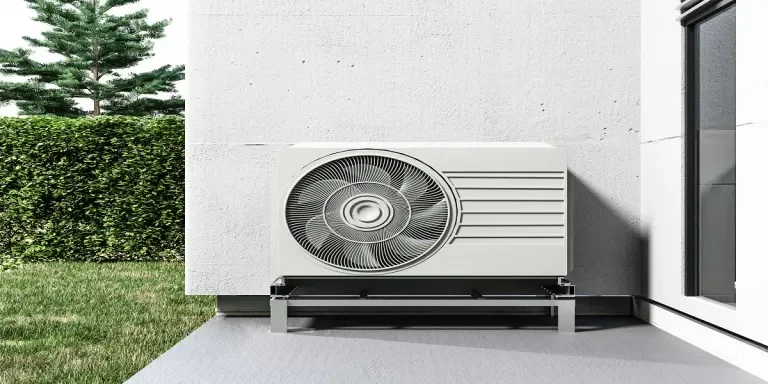A faulty AC compressor is a lot to deal with, whether at home, in the car, or in industrial settings. The compressor must be in perfect working order for the air conditioner to run at its best, because the compressor not only aids in the cooling process but also ensures the machine runs efficiently and continuously.
This article will offer a detailed guide to how automotive AC compressors work, potential problems of a faulty air compressor and how to troubleshoot them, as well as insights into when to fix a bad compressor.
Table of Contents
The AC compressor market
How do air compressors work in vehicles?
What are the problems of a bad AC compressor?
When is the perfect time to fix your AC compressor?
Rounding up
The AC compressor market
Manufacturing of air conditioning compressors is a significant segment of the automobile industry. Producers utilize state-of-the-art technologies in designing and creating products tailored to each regional market. As a result, air conditioning systems are now a standard feature in all types of vehicles, including light commercial vehicles (LCVs) and heavy commercial vehicles (HCVs).
The market for air conditioning compressors was valued at 23.40 billion US dollars in 2021 and is anticipated to grow to 35.10 billion US dollars by 2029 at a 5.2% compound annual growth rate (CAGR).
This market is anticipated to grow significantly during the forecast period as a result of the growth rate of major industrial applications, refrigerators, and ACs. In addition, rising auto sales and production, car ownership, the popularity of electric vehicles, and customer expectations are also powerful drivers of the market’s growth.
Leading AC manufacturers have taken advantage of this fantastic business opportunity. They are working hard to expand their market share in the air conditioning compressor industry. AC compressors are becoming more cost-effective in production and operation due to numerous new technologies entering the global market. These innovations are helping vehicles, houses, and industries meet fuel economy goals and reduce noise and vibration levels.
How do air compressors work in vehicles?
Although a vehicle’s air conditioning (A/C) system comprises various components, the compressor develops the system’s essential cycle, giving the refrigerant pressure before it pumps it to the condenser. This process is responsible for converting the refrigerant to liquid from gas.
Automotive air compressors use the auxiliary drive belt as their power source. The car’s engine crankshaft drives the air conditioner’s pulley through the belt as it rotates.
However, because only some use their air conditioner entirely while driving, the AC compressor has a clutch in the pulley to engage or disengage the compressor when switched on or off. Thus, if your air conditioner is switched off, the pulley on the compressor will turn. But the compressor’s internal components won’t.
The AC compressor is designed to raise the pressure and temperature of the refrigerant inside the system. So, the tightly packed molecules of the gas-based refrigerant may cause some of the heat absorbed from the evaporator to be released when it reaches the condenser.
What are the problems of a bad AC compressor?
Various reasons can cause an AC compressor to malfunction. Fortunately, some of them only need simple part replacements. Below are some of the common problems of a bad compressor.
Air leakage
Leaks in air compressors can lead to reduced productivity, lower efficiency, and profound financial implications. A telltale hiss from an AC or industrial air compressor hints at leaks at the disconnects, valve system, tubes, hoses and fittings, drains, flanges, pipe joints, worn tank, seals, or gaskets, or at any other spot.
If there is no hissing sound or the problem spot is out of sight and reach, use liquid soap to wash the connections, including the couplers and power switch, and watch out for bubbles.
Leaks may also mean the refrigerant will eventually escape the system at any of those problem spots later. The air conditioning cycle won’t run if there isn’t enough refrigerant, which could harm more than just the compressor.
Power and electrical motor problems
Many compressor issues are electrical. Sometimes, the compressor may not receive power even though the condenser fan or the AC unit works. One can never rule out the possibility that a fuse or breaker has blown. Frequent malfunctions with the fuses and breakers are not typical. Fuse and breaker malfunctions can severely damage the compressor and the air conditioning system.
Another potential cause could be the capacitor which enables the compressor to start and run. Unfortunately, this part occasionally stops functioning due to electrical surges or malfunctions with the actual units. The good news is that replacing a fuse, breaker, or capacitor is relatively inexpensive and straightforward.
Sometimes, the compressor’s electric motor may have winding issues, faulty piston rings, or is stuck or locked up. These causes are typically either irreparable or too expensive to fix. A technician may occasionally be able to fix some of these problems temporarily, but they may recur. In such cases, replacing the compressor is preferable.
Compressor failing to start or stop
When a compressor doesn’t start, the first and most obvious thing to do is to verify if it is receiving power, as earlier mentioned. However, there are other causes.
Usually, when there is not enough air pressure, a compressor won’t turn on. The cut-in pressure must match the amount of air pressure kept in the tank, and anything out of proportion is a problem. In such cases, the level should be adjusted per the pressure switch’s cut-in setting.
Sometimes, the compressor may start running but fail to stop. It is usually caused by faulty power switches or pressure release valves, which are replaceable.
If the compressor continues running, but air pressure isn’t produced, the pump or gasket may need changing. Replacing a few parts can help extend the lifespan of a compressor.
Oil present in compressor airlines
Excessive oil carryover is another problem to blame for a faulty air compressor. Oil carryover occurs when compressor lubricant escapes the separator filter and enters the discharge piping.
Any dirt, rust, or water in your system can mix with the oil, forming a sludge-like mixture that can clog the air compressor. Considering the high cost of lubrication and repair, oil carryover is an expensive problem.
Oil carryover can be due to excess oil in the reservoir, low temperature, exposure to humidity, clogged scavenge line, malfunctioning separator filter, or if the oil has reduced quality over time.
In addition, airline oil may damage air filters, valves, or other plastic components, causing them to malfunction or even crack and explode.
At least with reciprocating air compressors, the only natural way compressor lubricating oil can enter the tank is by wicking past the piston seals. As a result, disassembling the pump and replacing the seals is the only corrective measure.
Issues with pressure and flow
The pressure and flow are subtler issues than others. For example, the device might seem like it’s operating, causing the air compressors to build up too much air or none at all. Also, the pressure may be limited in its ability to exert itself beyond a specific PSI. The intake valve, pressure valve, gasket, piston seal, or tank may be worn or damaged in such cases.
Other causes include clogged intake filters, which strain the compressor and prolong the time it takes to build air; ill-fitting couplers, which obstruct airflow; and low-pressure gauge settings. Have an expert inspect and replace any compromised part.
When is the perfect time to fix your AC compressor?
There is rarely a perfect time to repair a malfunctioning air compressor. If a compressor breaks down, call an HVAC technician immediately. Sometimes it’s possible to repair AC compressors.
Other times, replacing the defective compressor with a new one is a better course of action. It depends on the type of problem and the age of the air conditioning system too. The whole unit may need a total overhaul if the HVAC system is over 10-15 years old.
Rounding up
Fixing compressor problems may be highly challenging for anyone without the required knowledge. On the other hand, some compressor problems may be simple issues that can be resolved with little or no expertise, like tightening loose parts.
However, the best thing to do when dealing with a malfunctioning compressor is to contact an HVAC technician. They’ll examine the compressor and the entire unit for any failure or damage and resolve them appropriately.
One essential thing to remember is that regular maintenance protects against such problems, or at least extends the unit’s lifespan, so cool air can constantly circulate when needed.




